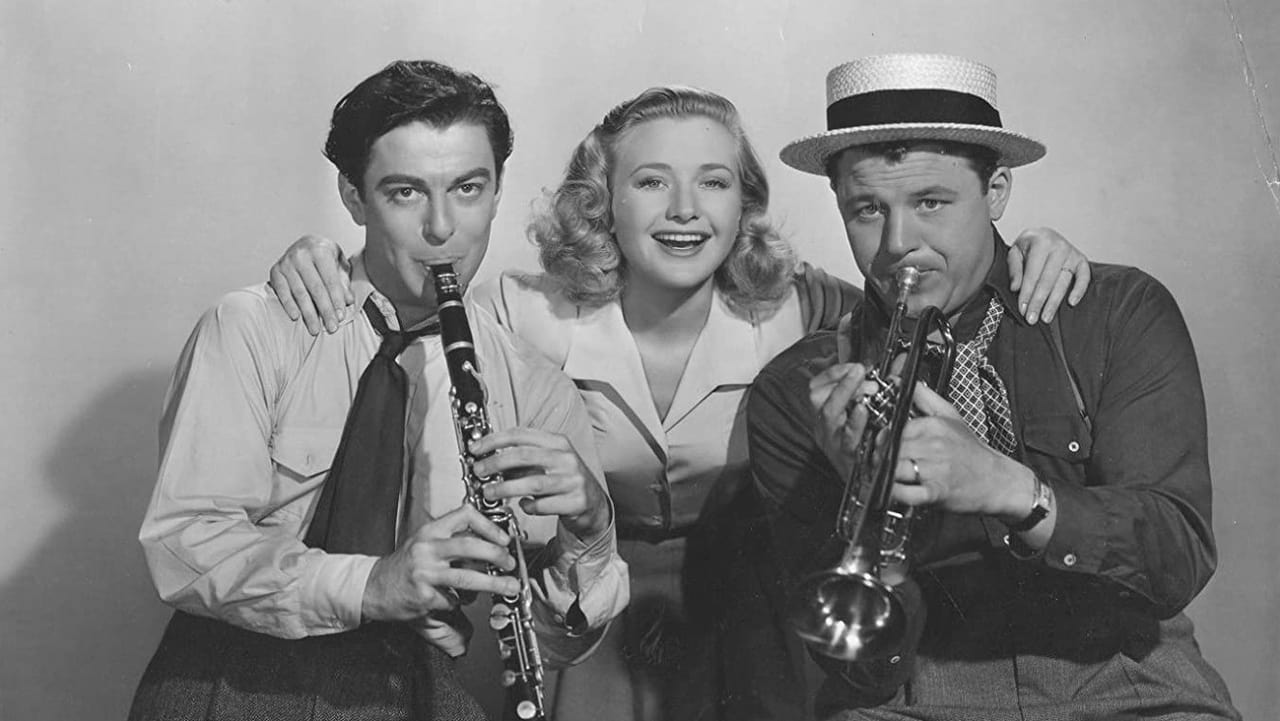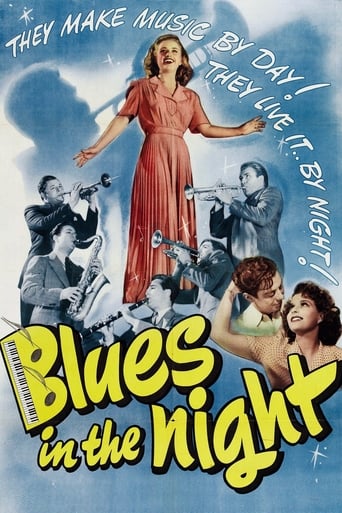

Plot so thin, it passes unnoticed.
... View MoreOverrated and overhyped
... View MoreIf you're interested in the topic at hand, you should just watch it and judge yourself because the reviews have gone very biased by people that didn't even watch it and just hate (or love) the creator. I liked it, it was well written, narrated, and directed and it was about a topic that interests me.
... View MoreThere's a more than satisfactory amount of boom-boom in the movie's trim running time.
... View MoreI recorded this film on spec because I was interested to see Richard Whorf in a starring role. I thought he did an excellent job but wasn't quite special enough in looks or personality to become a star. Top billed was Pricilla Lane who, by the importance of her role should have been billed about sixth. That's only the beginning of what I thought was one of the famous write it as you go WB films, like when They Drive by Night (1940) takes an unexpected turn into Bordertown (1935). It starts out as a few friends trying to form a band. Billy Hallop has a coughing fit in jail and we just know he's going to be their inspiration when he dies. Nope, he never coughs again. A brash Jack Carson shows up with his overwhelmed wife Lane. He treats here like dirt and chases after every skirt. We just know she and Whorf will get together. Nope, he falls for the dame Carson should have gotten, a no-good twist, play brilliantly by Betty Field. The band is bumming a ride in a box car when Lloyd Nolan, obviously a gangster on the run, hops aboard. The band shares their food with him. He's obviously going to do them a good turn. Nope. He robs them. But eventually Nolan sets up a nightclub and hires them. Field was his girl but Nolan is smart enough to have done with her. Here weak husband (?), Wallace Ford, fawns on her, totally dependent. He's a drunk and a gambler. We know Nolan will eventually kill him. Nope, he turns out to be quite a philosopher, taking matters into his own hands. One of his best roles. Whorf falls for Fields, becoming another Ford. He has a nervous breakdown. We know when he gets well, he'll rejoin the band, they'll become stars and it will end happily ever after. Nope, he falls for Field again. All during this the film gets darker and darker until peaking on a dark and stormy night. Finally, the band goes back to being just another band. Other reviewers claim the plot is routine but I think it deliberately sets up the plot turns to break them. Or maybe the writers just lost control. In any event, the film surprises at every turn. The acting of one and all is excellent and the dark cinematography is superb. The music is great with Whorf (or someone dubbing his playing)is really brilliant on the piano. It's a really good ensemble piece that deserves more recognition.
... View MoreThe song that Harold Arlen and Johnnie Mercer wrote for this movie turned out to be a gem. "From Natchez to Mobile, from Memphis to Saint Joe, Wherever the four winds blow, I've Been in some big towns, I've heard me some big talk, And there is one thing I know...." The music has real blues feeling, and the lyrics are as good as you'll ever find in a popular tune.So why is it that a movie which is named after the song and repeatedly alludes to it in its soundtrack never actually lets us hear the entire song from start to finish? The nearest thing to an extended performance is the rendition early on by the black man in jail. A good job, too, but cut short so we can return to the silly plot.There's also another good Arlen / Mercer song, totally different in spirit: "This Time the Dream's on Me." It's nicely sung by Priscilla Lane.There are interesting montages at two points in the movie, both created by Don Siegel. And the usual good performance by Lloyd Bridges.But for the most part it's a wildly arbitrary, melodramatic plot. The members of the band move about in unison, as if they were a flock of ducks. Two are named "Jigger" and "Character," a naive attempt to portray jazz musicians as colorful characters. Betty Field does a decent job with a part that makes her into a kind of female Iago. And Elia Kazan shows us why he ceased being an actor after this picture and focused on directing.
... View MoreI'm sure that if the brothers Warner had known that Harold Arlen and Johnny Mercer would give this film a score that would include This Time The Dream's On Me and the title song Blues In The Night, they would have found a better film for the score to be in. They also would have used some of their A list stars in the production.Instead this film was attached to a film that was clearly part of their B picture unit. Not that it's bad in fact the music raises it to a level unheard of for B films. It's the story of a jazz combo consisting of Jack Carson, Elia Kazan, Peter Whitney, Billy Halop, girl singer Priscilla Lane and their tempestuous leader Richard Whorf.As is the usual in real life and films these musicians are barely making a subsistence living until they meet up with Lloyd Nolan, a gangster on the run who puts them into a steady gig at a Jersey roadhouse he's got an interest in. They provide the entertainment and Nolan upstairs runs a gambling operation. His help is Howard DaSilva, Wallace Ford, and Betty Field.Field is some piece of work, she transitions nicely from her bad girl role in Of Mice and Men to this film. But the girl that got strangled by Lon Chaney, Jr. in that film is Mary Poppins next to the one she plays her. Nolan's on to her, Ford's a faithful stooge, but for Whorf she sends him for quite a tumble.In fact Blues In The Night becomes something of a prequel for The Lost Weekend. Whorf goes through the same kind of trip Ray Milland went through and the cinematic techniques showing his lost mind are quite similar.Blues In The Night got an Oscar nomination for Best Song, but lost to The Last Time I Saw Paris which was not written specifically for Lady Be Good the film it appeared in. It was 2 years old and quite the timely hit with the Nazis marching into Paris that year. If Blues In The Night had been in an A production it might have stood a better chance for an Oscar. I doubt if the Warner Brothers publicity machine went into any kind of gear for this film. Nevertheless the composer of The Last Time I Saw Paris, one Jerome Kern thought Arlen and Mercer should have won that year. He campaigned himself to get the rules to state clearly the song must be an original one written specifically for a film.It's an average B film, still Blues In The Night has achieved its own immortality through its musical score.
... View MoreThe blues and swing music are quite good, what there was of it. Unfortunately the music keeps getting interrupted by the sort of sappy story that Hollywood usually attached to films that were billed as musicals.Down and out musicians, riding the rails like hobos, decide to form a band at Depression's end, but they keep getting involved with gangsters, stupid club owners and a woman of very questionable morals who would break up their happy family. There's a good girl, of course, a blond singer who belongs to a philandering trumpet player. Oh, what's the use--no one would watch this for the story or to see Jack Carson or Lloyd Nolan or the rest of them.If only there had been more of the music and less of what some might call "drama," and what I would call fast talking, poor acting treacle.
... View More